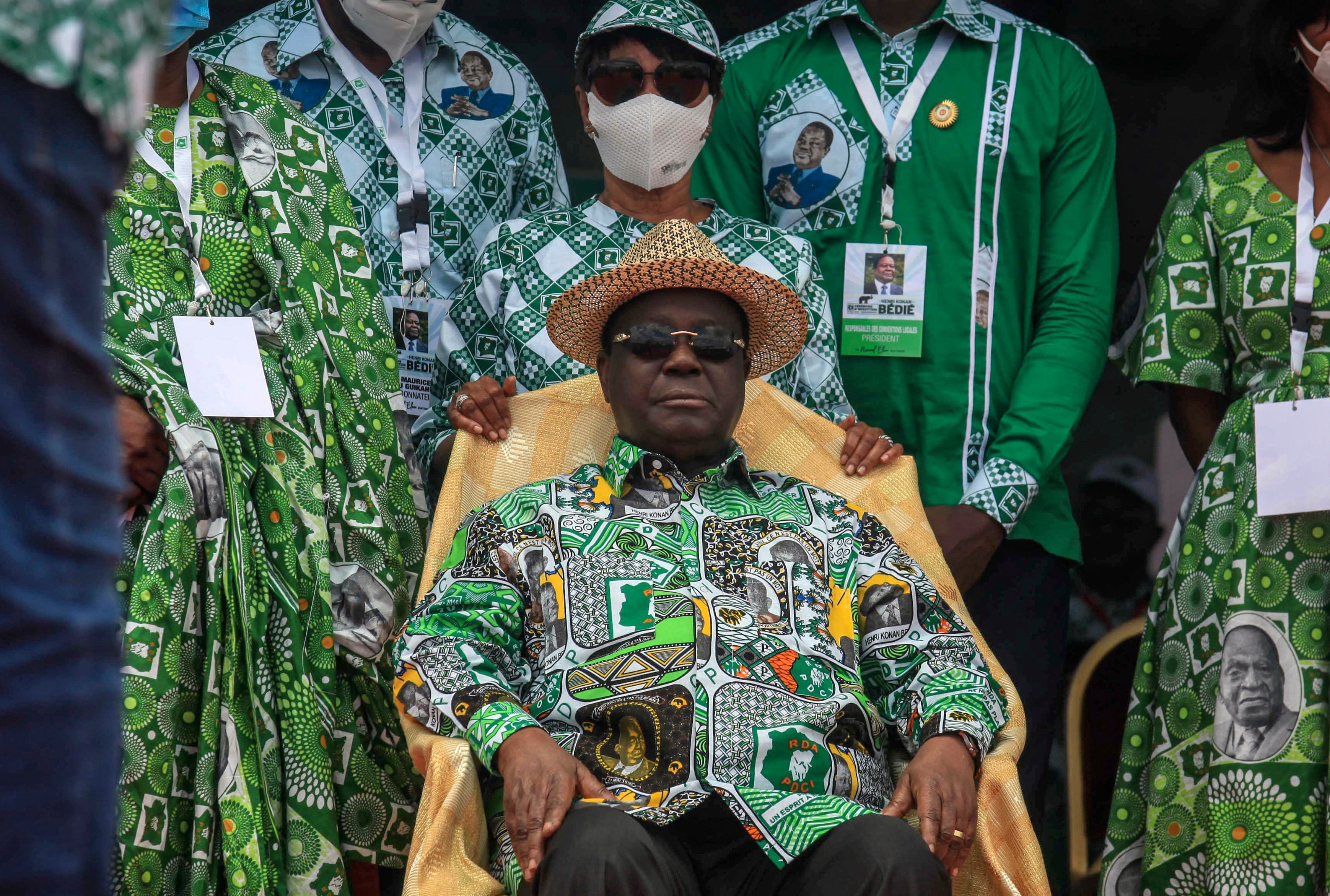Former Ivory Coast President Bédié known for promoting ethnic tensions dies at 89, his party says
Former Ivory Coast president Henri Konan Bédié has died Tuesday night at the age of 89, according to a communiqué from his party

Your support helps us to tell the story
From reproductive rights to climate change to Big Tech, The Independent is on the ground when the story is developing. Whether it's investigating the financials of Elon Musk's pro-Trump PAC or producing our latest documentary, 'The A Word', which shines a light on the American women fighting for reproductive rights, we know how important it is to parse out the facts from the messaging.
At such a critical moment in US history, we need reporters on the ground. Your donation allows us to keep sending journalists to speak to both sides of the story.
The Independent is trusted by Americans across the entire political spectrum. And unlike many other quality news outlets, we choose not to lock Americans out of our reporting and analysis with paywalls. We believe quality journalism should be available to everyone, paid for by those who can afford it.
Your support makes all the difference.Former Ivory Coast president Henri Konan Bédié died Tuesday night at the age of 89, according to a communiqué from his party.
State media reported that he was rushed from his hometown of Daoukro in central Ivory Coast yesterday evening after falling ill. He arrived by helicopter around 8 p.m. at a hospital in Abidjan, the nation’s largest city and economic hub, where he passed away.
Till his death, Bédié was president of the Democratic Party of the Ivory Coast, which planned to take part in the nation’s 2025 elections.
In a statement on Wednesday, his party called him a “Great Statesman” who worked to bring peace to the country and “the Grandeur of our nation.”
A career diplomat and politician, Bédié was head of state in the West African nation from 1993 to 1999 before he was overthrown in a military coup.
The late president was known for promoting the concept of “Ivoirité,” which stoked ethnic and religious tensions and corresponded to an uptick in violence against immigrant groups in the country.